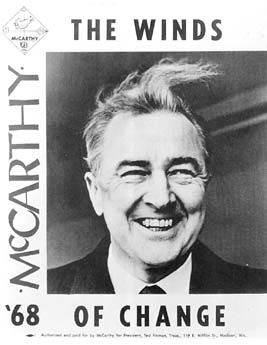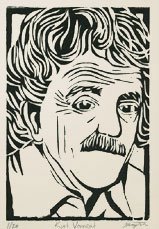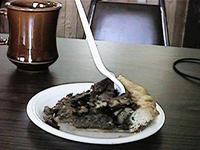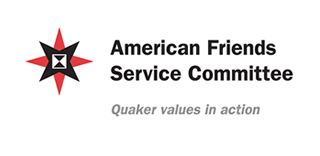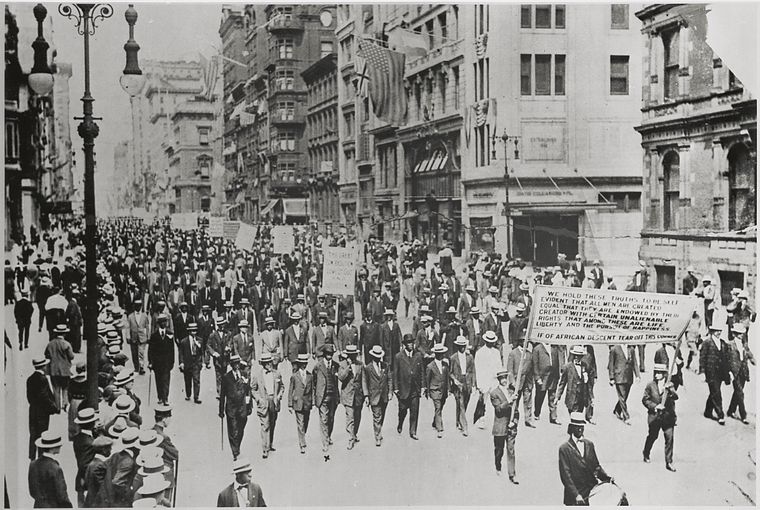Back in May, after leading a brief workshop and singing a lot of Sacred Harp at Yearly Meeting, a Friend asked if I’d come to his home in
Ogema, Wisconsin, and teach his neighbors how to sing Sacred Harp. I said yes, but suggested that we invite other Friends in the region in order to ensure the critical mass of that you need for a successful singing school.
He agreed, and over the summer we set a date, made the necessary announcements and phone calls. Eventually, we had enough committed, so it was a go.
The singing took place a few hundred yards down the road from our Friends’ home, at The Homestead, an old log house on an isthmus between two of the four lakes on the property. (Their property includes the highest elevation above sea level in Wisconsin, but that requires the telling of a wonderful story that is too much to go into here. Let’s just say that you shouldn’t believe everything you read on a map, or a USGS plaque.)

(Thanks to
Writeousness for the photo; more available there). The Homestead has been in the Friend’s family for generations and is full of wonderful historic material, e.g., a class photo and commencement program of the Yale class of 1928 of which our Friend’s father was a member. And outhouses wallpapered with invitations to Nixon and Reagan inaugurations, a poster of Spiro Agnew, and autographed photos of the Clintons and Al Gore, etc. No electricity, but a gas stove and lamps and comfortable beds; long tables and lots of eclectic chairs and benches. And a 20’x20’ screened-in covered building overlooking one of the lakes to sing and sleep in. In other words, a comfortable, simple, beautiful, hospitable place.
It was raining hard when we arrived on Friday night, but Saturday dawned a brilliant blue sky and freshly green forest full of energy and promise. About twenty Friends and neighbors came altogether. Most singers were completely new, and a few others had tried before but not quite gotten the hang of it yet.
We started singing a little after lunch with some instruction of the several singers new to Sacred Harp. By dinner, we were singing like regulars. They were quick and enthusiastic learners and produced the familiar sound after just a song or two. Later Saturday afternoon, more experienced singers arrived, and they were willing to challenge the class by more difficult pieces. Saturday night, we moved the singing from the screened room into the small living room. This was real fun since we were crunched up pretty close to each other, sang by the glow of gas lamps, and the low ceiling and wood floors & walls made a pretty reverberant sound. We sang again on Sunday morning inside, and then went outside to hold meeting for worship which was deep and holy.
And there was food for the body as well as the soul. It was provided ad hoc without pre-determined coordination but which, like Holy Manna, filled all the nooks and crannies of our appetites with plenty left over: roasted turkey; chili and hot dogs; home-grown tomatoes and other vegetables; German potato salad; tabouli and baba ghannouj and hummus; bowlfuls of fresh fruit; steel cut oats; beans, tortillas & home-grown eggs for breakfast; the best cherry cobbler I’ve ever eaten (a Martha Stewart recipe); lasagna; pasta salad; strong coffee; mint tea; cold Leinenkugel beer. Any Sacred Harp singer would have recognized the dinner table as dinner on the grounds and felt right at home.
Its been a few weeks now since the weekend, and the glow has worn off just a bit, so I can spare you my rhapsodizing about Sacred Harp singing. But now I’m preparing for our Minnesota State Sacred Harp Singing Convention this coming Saturday & Sunday (mainly by playing a CD recording of the 1999 convention in the car at too loud a volume). I look forward to this event every year like some people look forward to Christmas. (I love Christmas, too. . . .) For more information, you can go
here. I'm getting ready to glow again.
To top off the weekend, I drove there and back with a dear Friend -- one who I've known since before moving to Minnesota -- with whom I realized I had not talked deeply with for a long time. The conversation made the transition from and back to the World easier and memorable. She also led me to a wonderful
ice cream parlor in Chippewa Falls that I'm pretty sure will become a regular rest stop for our family on our way to yearly meeting in the future.
* * * *
I arrived home about an hour after the three Holly women and Only Son got home, the three women from a 2-week trip to
Gold Hill, Colorado where Mother-in-law owns a home and Sister-in-law and Husband are for the moment, and Only Son from a week at
People Camp.
Although the quiet of the previous week alone was gone (and it wasn’t all that quiet, actually), I felt at peace after two weeks of discombobulation. There is a peace that comes with normalcy, as
Warren G. Harding discovered, even when normal is busy: Only Son eating ice cream at the computer while reading
Crooksandliars.com and the
New York Times and listening to the Twins’ game on the radio; Youngest Daughter reading her
new book on the couch and finally finishing putting away the supper dishes; Lovely Wife singing to her mother while putting her to bed; and me on the Christmas-tree-light lit front porch writing this as I finish the last glass of red wine.
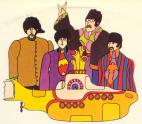 I love this fact and the image of the pacifist clairnet player in the Marine Band. It reminds me of the Yellow Submarine where Sgt. Pepper's Lonely Hearts Club Band brought music back to Pepperland, converted the Blue Meanies, and thawed all the people frozen by the Meanies.
I love this fact and the image of the pacifist clairnet player in the Marine Band. It reminds me of the Yellow Submarine where Sgt. Pepper's Lonely Hearts Club Band brought music back to Pepperland, converted the Blue Meanies, and thawed all the people frozen by the Meanies.